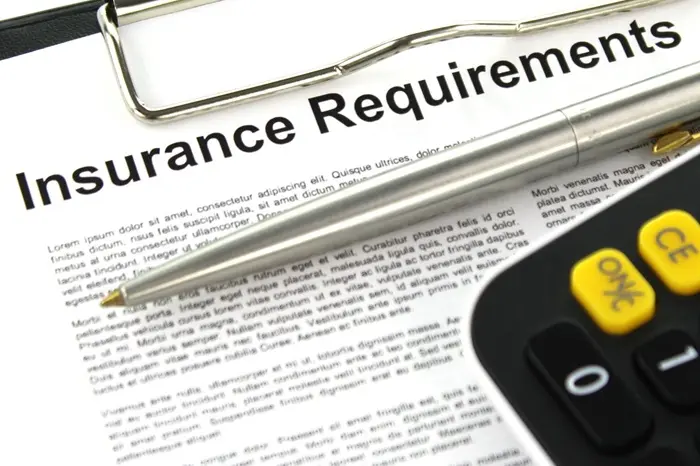Insurance plays a critical role in safeguarding individuals and businesses from financial risks and losses. In Georgia, as in many other states, certain types of insurance are mandated by law to ensure that residents are adequately protected. This article explores the two primary types of insurance required by Georgia law: auto insurance and workers’ compensation insurance. Understanding these requirements is essential for compliance and for ensuring financial protection.
Auto Insurance
Legal Requirements
In Georgia, auto insurance is mandatory for all drivers. The state enforces this requirement to ensure that all drivers have the financial means to cover damages or injuries resulting from a car accident. The minimum liability insurance coverage required by Georgia law includes:
Bodily Injury Liability: $25,000 per person and $50,000 per accident
Property Damage Liability: $25,000 per accident
These minimum limits are designed to cover the costs associated with injuries and property damage caused to others in an accident for which the insured driver is at fault.
Types of Coverage
While the state mandates minimum liability coverage, there are other types of auto insurance coverage that drivers may consider:
Collision Coverage: Pays for damage to the policyholder’s vehicle resulting from a collision, regardless of fault.
Comprehensive Coverage: Covers damages to the policyholder’s vehicle from non-collision-related incidents, such as theft, vandalism, or natural disasters.
Uninsured/Underinsured Motorist Coverage: Provides protection if the policyholder is involved in an accident with a driver who lacks sufficient insurance.
See Also: 5 Cheapest Car Insurance In Georgia
Penalties for Non-Compliance
Failure to maintain the required auto insurance in Georgia can result in significant penalties, including:
Fines: Drivers without the necessary insurance coverage may face fines ranging from $200 to $1,000.
License Suspension: The driver’s license and vehicle registration may be suspended until proof of insurance is provided.
Vehicle Impoundment: In some cases, the vehicle may be impounded until proper insurance is obtained.
These penalties underscore the importance of maintaining the required auto insurance coverage to avoid legal and financial repercussions.
Filing a Claim
In the event of an accident, drivers must follow specific procedures to file a claim with their insurance company:
Report the Accident: Notify the insurance company as soon as possible.
Document the Incident: Collect information from all parties involved, including contact details, insurance information, and a police report if applicable.
Submit a Claim: Provide the necessary documentation and information to the insurance company to initiate the claim process.
Choosing the Right Policy
Selecting the right auto insurance policy involves evaluating one’s needs and budget. Factors to consider include:
Coverage Limits: Higher limits provide more protection but may result in higher premiums.
Deductibles: A higher deductible can lower premium costs but requires the policyholder to pay more out-of-pocket in the event of a claim.
Additional Coverage Options: Consider additional coverage, such as roadside assistance or rental car reimbursement, based on individual needs.
Workers’ Compensation Insurance
Legal Requirements
Workers’ compensation insurance is mandatory for most employers in Georgia. This type of insurance provides benefits to employees who suffer work-related injuries or illnesses. The primary purpose of workers’ compensation is to cover medical expenses, lost wages, and rehabilitation costs, ensuring that employees receive the necessary support without the need for litigation.
Coverage and Benefits
Workers’ compensation insurance in Georgia typically includes:
Medical Benefits: Covers all necessary and reasonable medical treatment related to the work injury or illness.
Income Benefits: Provides partial wage replacement during the employee’s recovery period. This usually amounts to two-thirds of the employee’s average weekly wage, subject to maximum limits.
Permanent Disability Benefits: Compensation for employees who suffer permanent impairments as a result of their work-related injuries.
Death Benefits: Provides financial support to the dependents of an employee who dies as a result of a work-related injury or illness.
Employer Responsibilities
Employers in Georgia have specific responsibilities under the workers’ compensation law, including:
Obtaining Coverage: Employers with three or more employees must obtain workers’ compensation insurance. This includes part-time and seasonal workers.
Posting Notices: Employers must display a notice informing employees of their rights under the workers’ compensation law and providing information on how to report an injury.
Reporting Injuries: Employers must report any work-related injuries to their workers’ compensation insurance carrier within a specified timeframe.
Penalties for Non-Compliance
Failure to comply with workers’ compensation requirements can result in severe penalties for employers, including:
Fines: Employers may face fines of up to $5,000 per violation.
Criminal Charges: In some cases, non-compliance can lead to criminal charges, including imprisonment.
Increased Liability: Employers without workers’ compensation coverage may be held personally liable for the costs associated with an employee’s injury or illness.
Filing a Claim
Employees who suffer work-related injuries must follow specific procedures to file a workers’ compensation claim:
Report the Injury: Notify the employer immediately. Failure to report the injury within 30 days may result in the denial of benefits.
Seek Medical Treatment: Obtain medical treatment from an authorized healthcare provider.
File a Claim: Submit a claim with the employer’s workers’ compensation insurance carrier. This typically involves completing and submitting specific forms.
Choosing a Policy
When selecting a workers’ compensation policy, employers should consider several factors:
Coverage Limits: Ensure the policy provides adequate coverage for potential claims.
Provider Network: Verify that the policy includes access to a network of authorized healthcare providers.
Cost: Compare premiums and deductibles from different insurers to find the best value.
Conclusion
Understanding and complying with Georgia’s insurance requirements is crucial for both individuals and businesses. Auto insurance and workers’ compensation insurance are two types of coverage mandated by state law, each serving a vital role in protecting against financial risks and ensuring that individuals and employees receive the necessary support in the event of an accident or injury. By maintaining the required insurance coverage and understanding the associated responsibilities, residents and employers in Georgia can navigate the complexities of insurance regulations and safeguard their financial well-being.
Related topics:
































